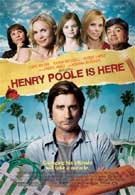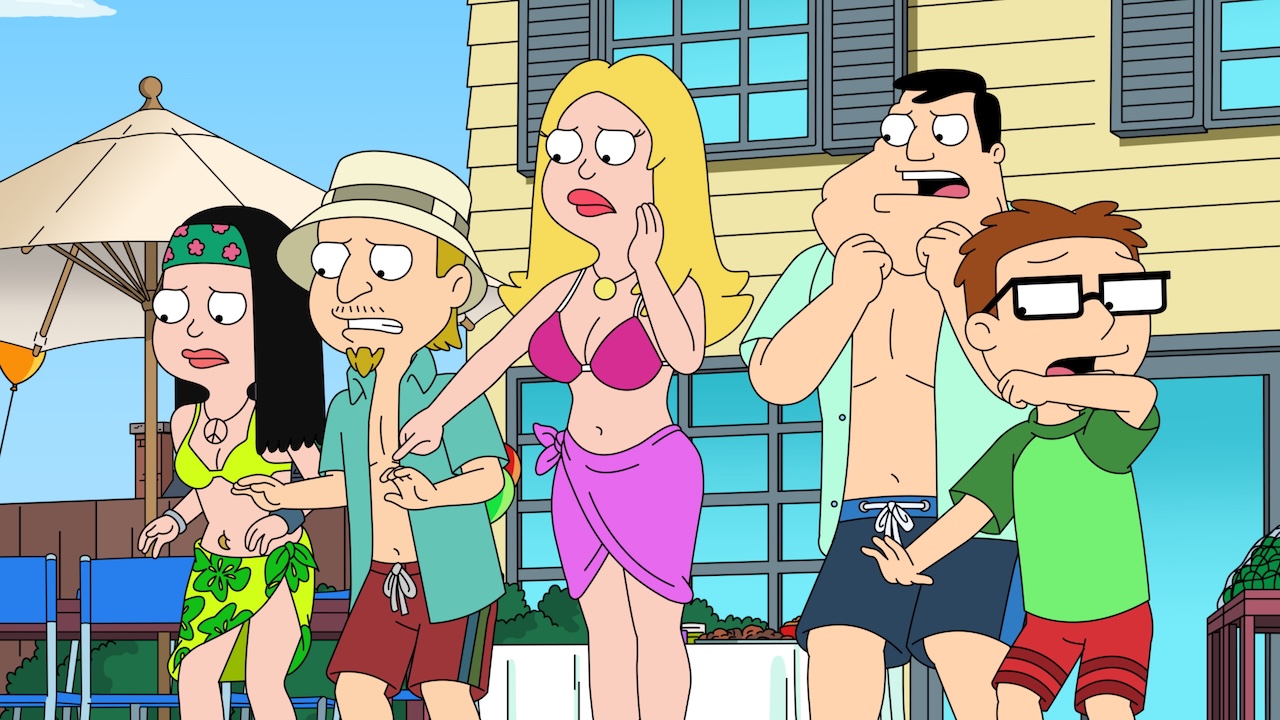What is a miracle? Ask six different people and you’re bound to get six different answers. One person might call it a supernatural divine intervention. Another might say it’s a coincidental event that happens at an opportune time. Yet another might suggest there is no such thing, it’s just something people make for themselves out of sheer will to survive or to help them cling to their faith. Whatever your answer might be, Henry Poole is Here probably touches on it and one of the movie’s characters likely sees the world from your point of view.
As a film Henry Poole isn’t particularly well put together, but the subject matter still shines through in the characters that inhabit its rough-shod story. Teaming up first time screen-writer Albert Torres with a director like Mark Pellington might have been the movie’s biggest flaw. Torres’ material is heart-felt and his characters are genuine, but while certain scenes of inspired dialogue are almost poetic, others completely fall apart. The subject matter, miracles, is a touchy subject for a first time writer to tackle (don’t ask me how the movie made its way onto the Sundance list). Mix that in with Pellington’s general struggles with cinematic storytelling (if you’ve seen his Mothman Prophecies you know what I’m talking about) and you have a movie with a lot of potential but not enough polish.
So, who is Henry Poole and why should we care where he is? Henry (Luke Wilson) is a man with very little time, and no hope left. He has been told by his doctor that he has a very rare, incurable disease and it will claim his life very soon. Lost for what to do, and not being one to believe in such things as miracles, he abandons his job and his life and moves to a house in his childhood neighborhood. On a steady diet of vodka, pizza and Krispy Kreme, he mopes around the spartan environment, bitterly waiting to die.
Without his knowledge Poole’s realtor has had the exterior of the house re-stuccoed and painted before he moves in, a futile gesture given his anticipated short stay in the house. Henry could care less, but when his sweet natured but nosy neighbor Esperanza (Adrianna Barraza) spots the face of Christ in a water stain in the stucco, any hope Henry had for being left alone goes out the window.
Things grow even more challenging when the face mysteriously begins to weep blood. I can tell some of you are beginning to panic already, perhaps because you’re worried the film is mocking supernatural icons or perhaps you think it’s leading the movie down a painfully religious path. Suffice to say that you’d be wrong either way; but let the panic subside. Henry’s grounded skepticism and Esperanza’s awe-struck fervor find a level playing field in the film, offering the intellectual and emotional sides that both characters bring to their views on the situation.
Enter Poole’s other neighbor, Dawn (Radha Mitchell), a struggling single mother whose six-year-old daughter Millie (Morgan Lily) hasn’t spoken since her father abandoned them. After several odd run-ins with the little girl, Henry finds her one night standing at the face on his wall, silently crying. With a single touch to the face Millie begins to speak again, a miraculous event of sorts and one over which Henry and Esperanza once again struggle. Dawn, simply grateful to see Millie happy again, begins to suspect that it’s Henry’s presence that is breaking through to her daughter and decides to probe deeper into why the reclusive Henry is so angry and sad.
In the midst of all these questionable miracles comes Patience (Rachel Seiferth), a girl who works in the grocery store where Henry buys his booze and donuts. Wearing coke-bottle glasses fit for Mr. Magoo, she comes one day uninvited to the wall and with a single touch to the face suddenly has perfect vision. Again, you’re probably cringing for one reason or another, and when you see it on screen you still might. The moment itself is poorly set up by writer and director. The aftershocks of the event, however, play out in some rather remarkable exchanges of words between Patience and Henry that are both thoughtful and challenging.
Your Daily Blend of Entertainment News
As the story presses forward the main conflict is clear: a man who has been told he’s dying, but who doesn’t believe in the miraculous, has a face of Christ on his wall that may or may not have the power to perform miracles. The ending will probably surprise you, but it’s hard to enjoy the experience. The final scenes are so awkward that they can’t help but be disappointing, whether you find the conclusion satisfying or not.
Henry Poole's biggest asset, and perhaps the best reason to bother with the movie, is the cast. There are no standout performances from anyone in particular, but as an ensemble they shine,finding a nice balance between the movie’s comedy and drama. Barraza is a special treat, somehow ingratiating her character while walking the fine line between nosy neighbor and caring friend.
To its credit Henry Poole is Here addresses both the religious and the realist points of view on miracles, but in the end it doesn’t try to sell you on one or the other. Rather than preach any kind of message about finding hope in life, the thoughts and ideas are laid out by the characters in the course of their conflicted collisions. Sure, with character names like Esperanza (Spanish for hope) and Patience, you can tell there’s a point being made, but you’re not being beaten over the head with it. Even with all the exploration on the idea of miracles, that’s really not the soul of the film. Henry Poole is Here is the simple story of a man searching for one of the most important miracles of all: finding joy in life.

